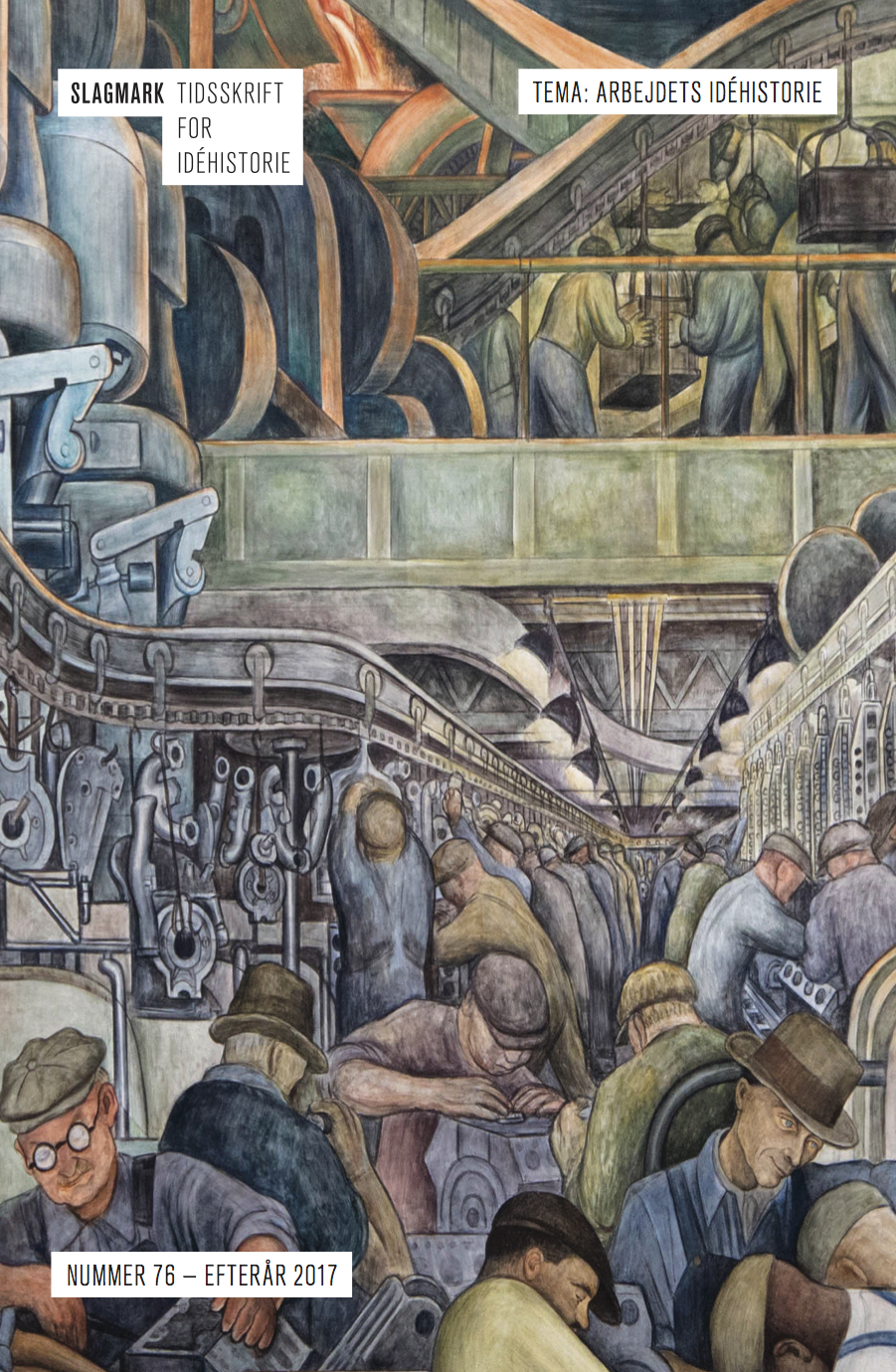Arbejdet som improvement - landbrug, husholdning og kapitalisme i 1500- og 1600-tallets England
DOI:
https://doi.org/10.7146/slagmark.v0i76.124160Nøgleord:
Early Modern England, Agrarian Capitalism, Improvement, Husbandry, HousekeepingResumé
WORK AS IMPROVEMENT - HUSBANDRY, HOUSEKEEPING AND CAPITALISM IN 16TH ANN 17TH CENTURY ENGLAND
This article traces the development of a new attitude to work as improvement in early modern England. By focusing on agricultural manuals from the period, the author shows how the attitude to work as improvement developed as a response by yeomen and gentleman farmers to their increasing subjection to market imperatives. In contrast to the ethics of housekeeping, which stressed the good maintenance and ordering of the ‘house’ in the broadest sense as the primary aim of social and economic activities, the new idea of improvement focused on activities directed at the market. This idea established new distinctions between good and bad work, and it created new criteria for valorizing different types of agricultural activities. The constant drive to measure the value of agricultural work in terms of market price, and to continually raise productivity and efficiency and make use of the latest techniques and inventions became pivotal for these agricultural writers. The idea of work as improvement had a wide range of new moral, cultural and political dimensions, all of which consolidated into a more coherent ideology of improvement by the late 16th century.
Downloads
Publiceret
Citation/Eksport
Nummer
Sektion
Licens
Ophavsretten til artiklerne i Slagmark deles mellem forfatter og Forlaget Slagmark.
Artikler og tekstmateriale publiceret i Slagmark må citeres, downloades og videresendes for ikke-kommerciel brug, under forudsætning af normal akademisk reference til forfatter(e) samt tidsskrift, årgang, nummer og sider.
Brug og distribution af tekstmateriale både i form af papirkopier og elektroniske kopier, til undervisningsbrug på uddannelsesinstitutioner og intern brug er tilladt efter aftale med Copydan Tekst & Node. Brugen skal ske inden for aftalens rammer.
Artikler og tekster må kun genudgives med eksplicit tilladelse fra forfatter(e) og tidsskriftet med en anerkendelse af værkets første publicering i nærværende tidsskrift.





